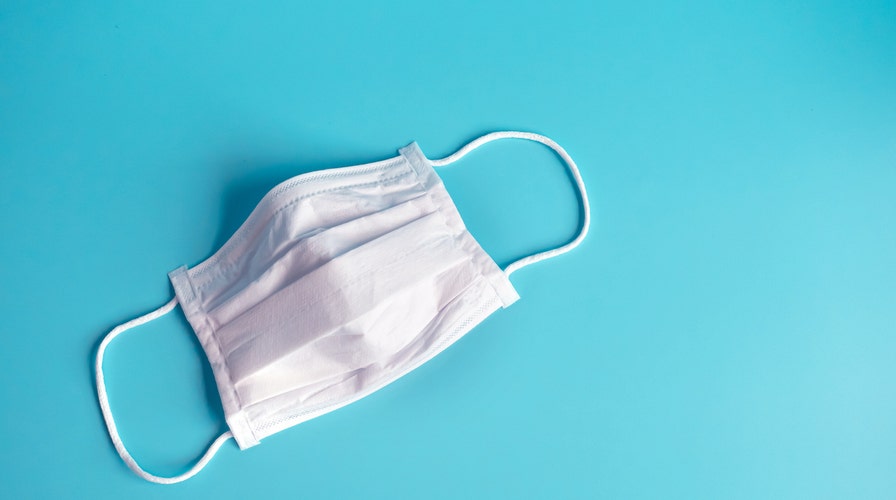Fox News Flash top headlines for July 8
Fox News Flash top headlines are here. Check out what's clicking on Foxnews.com.
Health experts have stressed the importance of wearing a mask to limit the possibility of infecting others with COVID-19, but a range of new research now suggests they also protect the wearer, according to a report Monday.
With many states implementing policies to make face coverings mandatory in both indoor and outdoor spaces, one doctor says that masks also reduce the risk of infection to the wearer by 65 percent.
"We've learned more due to research and additional scientific evidence and now we know [that] not only wearing a mask prevents the person wearing the mask to transmit to others, but wearing the mask protects the person who's wearing it," said Dean Blumberg, chief of pediatric infectious diseases at UC Davis Children’s Hospital.
MASSACHUSETTS SUSPECT PULLS GUN ON MASKLESS MAN OUTSIDE WALGREENS: COPS SAY
"So the wearer of the mask, even the standard rectangular surgical masks ... will decrease the risk of infection by the person wearing the mask by about 65 percent."
He added that N95 masks do an even better job at protecting people from the virus, but they are in short supply and are needed for healthcare professionals.
Blumberg and William Ristenpart, a professor of chemical engineering at UC Davis, appeared on UC Davis Live: Coronavirus Edition to discuss the topic of transmission. Ristenpart's lab at UC Davis has studied how people emit small droplets while breathing or talking that could carry the virus.
The pair highlighted two primary methods of transmission. The first being visible droplets a carrier expels, which are roughly one-third the size of a human hair. They said masks create an effective barrier against those types of droplets.
“Everyone should wear a mask,” Blumberg said. “People who say, ‘I don’t believe masks work,’ are ignoring scientific evidence. It’s not a belief system. It’s like saying, ‘I don’t believe in gravity.’"
The second is via the aerosol particles we expel when we talk. They are about 1/100th the size of a human hair and are more difficult to defend against. He said that's because the smaller particles could still sneak through a gap in rectangular or homemade cloth masks.
Social distancing and staying outdoors, are helpful for staying clear of the small particles because there is more airflow, Blumberg and Ristenpart said.
COLORADO CITY TO MANDATE CORONAVIRUS FACE COVERINGS, THREATENING UP TO A YEAR IN JAIL FOR VIOLATORS

Close up white surgical face mask on a blue-green background. (iStock)
“Studies in laboratory conditions now show the virus stays alive in aerosol form with a half-life on the scale of hours. It persists in the air,” Ristenpart added. “That’s why you want to be outdoors for any social situations if possible. The good airflow will disperse the virus. If you are indoors, think about opening the windows. You want as much fresh air as possible.”
He said that's why enclosed areas like bars -- seen as hotspots for contracting the virus -- are particularly dangerous: “The louder you speak, the more expiratory aerosols you put out."
CLICK HERE TO GET THE FOX NEWS APP
“So we don’t know who might spread it,” Blumberg said. “We do know social distancing reduces the risk of transmitting the virus by 90 percent, and wearing masks decreases the risk by 65 percent."

